
Mosquitoes can turn a pleasant evening in the garden into an annoying and itchy experience. While chemical repellents are effective, their potential health risks and environmental impact make them less desirable for many. Fortunately, natural, plant-based alternatives can help keep these pesky insects at bay. Here are some of the best mosquito-repelling plants, you can use their essential oils or leaves to repel mosquitoes and add them to your garden to create a serene, bug-free oasis.
Table of Contents
ToggleBasil (Ocimum basilicum)
Basil is a culinary favorite that also has insect-repellent properties. Its essential oil contains compounds like estragole and eugenol, which are effective against mosquitoes and flies. Basil is easy to grow and can be planted near doors and windows to help prevent insects from entering your home.
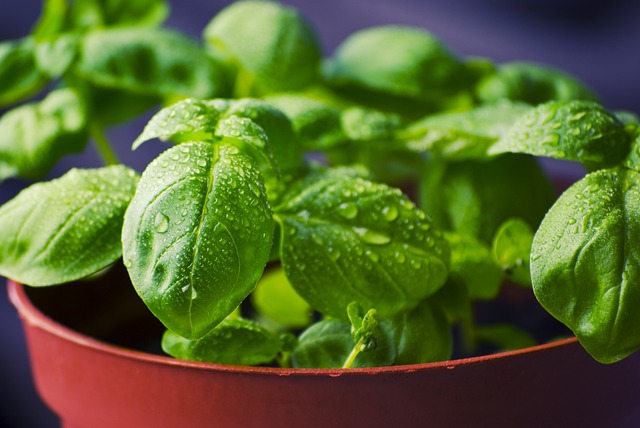
Broad-Leaved Eucalyptus (Eucalyptus globulus)
Broad-leaved eucalyptus has a strong scent that repels mosquitoes. Its essential oil is commonly used in natural insect repellents and can provide up to 8 hours of protection. Plant broad-leaved eucalyptus in your garden for both shade and mosquito control.
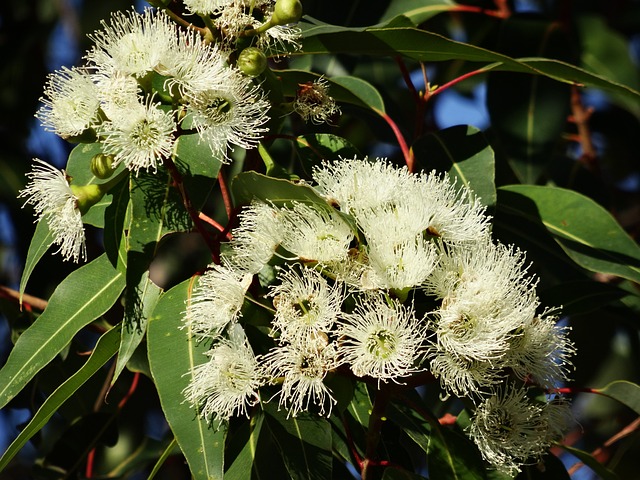
Camphor (Cinnamomum camphora)
Camphor trees have a strong scent that repels mosquitoes. The essential oil contains camphor, which is known for its insect-repellent properties. Use camphor oil in diffusers to keep mosquitoes away.
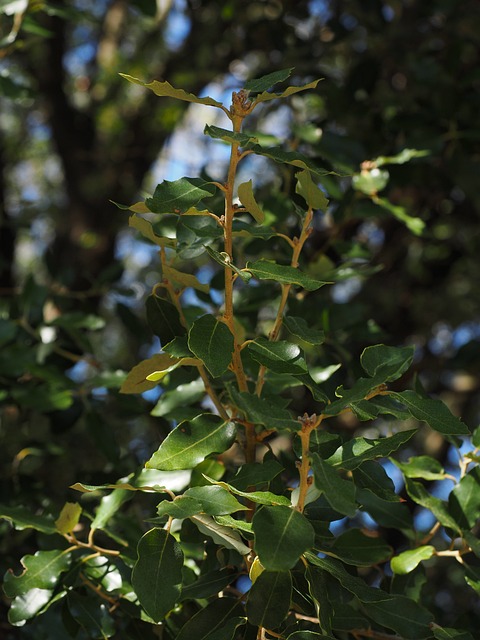
Catnip (Nepeta cataria)
Catnip is well-known for its effect on cats, but it’s also a potent mosquito repellent. Research indicates that catnip oil is about ten times more effective than DEET in repelling mosquitoes. The active compound, nepetalactone, is responsible for this effect. Planting catnip can help keep mosquitoes away while giving your furry friends something to enjoy.

Cedarwood (Cedrus spp.)
Cedarwood has a strong, woody scent that repels mosquitoes and other insects. Its essential oil is commonly used in natural insect repellents. Plant cedar trees in your garden or use cedarwood oil in diffusers to keep pests at bay.
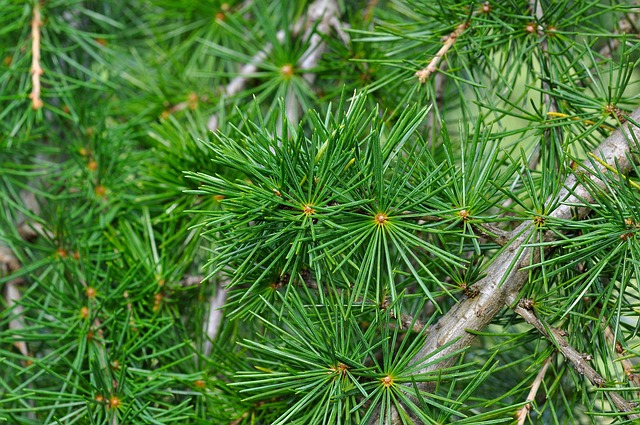
Chamomile (Matricaria chamomilla)
Chamomile is not only soothing and aromatic but also an effective mosquito repellent. Its essential oil contains compounds that deter mosquitoes. Plant chamomile in your garden to enjoy its calming effects and insect-repelling properties.
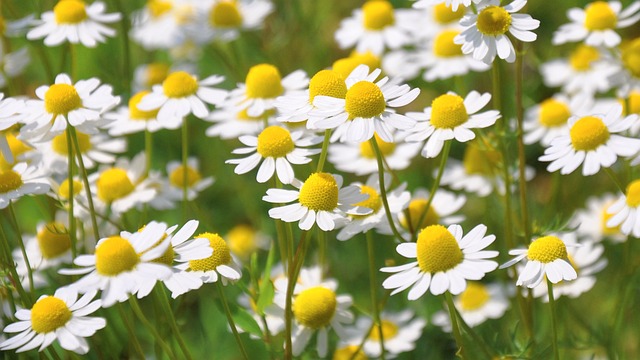
Cinnamon (Cinnamomum verum)
Cinnamon oil is known for its mosquito-repellent properties. Its strong scent can keep mosquitoes at bay. Use cinnamon oil in diffusers or sprays to protect your outdoor areas from mosquitoes.
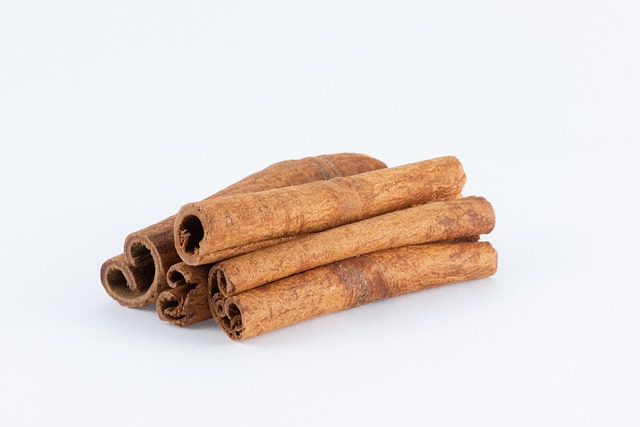
Citronella (Cymbopogon nardus)
Citronella is one of the most popular natural mosquito repellents. The plant emits a strong lemony scent that masks the smells that attract mosquitoes. According to a systematic review by Asadollahi et al., citronella oil can provide up to 9-11 hours of complete protection against various Anopheles mosquito species, which are known vectors of malaria.
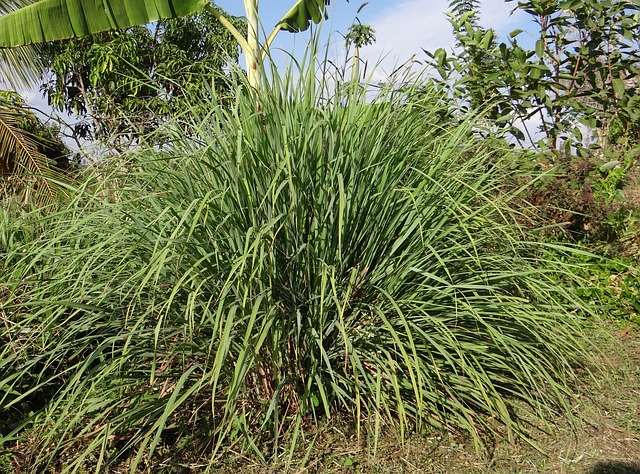
Eucalyptus (Eucalyptus spp.)
Eucalyptus trees and shrubs have a strong menthol-like scent that repels mosquitoes. The essential oil from eucalyptus leaves can provide up to 8 hours of protection against mosquitoes. Eucalyptus can be grown in the garden and used in oil form for its repellent properties.

Geranium (Pelargonium spp.)
Geraniums, particularly those with a strong lemon scent, are effective mosquito repellents. They contain citronellol and geraniol, which are known to repel mosquitoes. Plant geraniums in containers or garden beds to add color and repel insects.
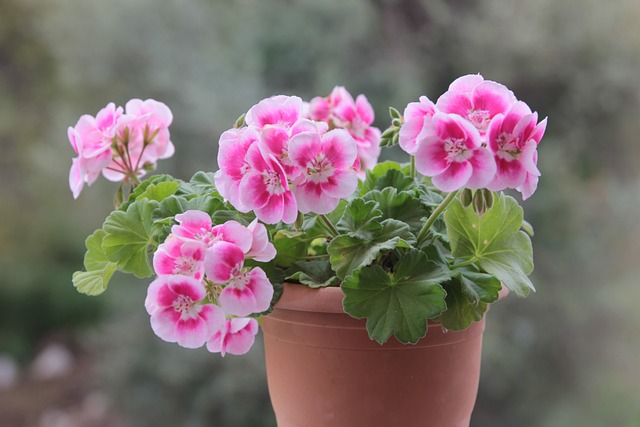
Jasmine (Jasminum spp.)
Jasmine is not only beautiful and fragrant but also an effective mosquito repellent. Its essential oil contains compounds that repel mosquitoes. Plant jasmine near outdoor seating areas to enjoy its scent and mosquito-repelling benefits.

Juniper (Juniperus spp.)
Juniper has a strong scent that repels mosquitoes and other insects. Its essential oil contains compounds that are effective against mosquitoes. Plant juniper bushes in your garden or use juniper oil in diffusers for natural insect control.
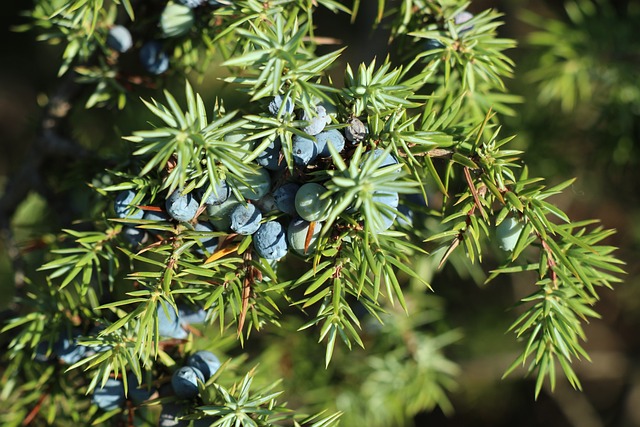
Lavender (Lavandula spp.)
Lavender is not only known for its lovely purple flowers and calming fragrance but also for its insect-repellent properties. The essential oils in lavender contain compounds such as linalool and linalyl acetate, which are effective against mosquitoes. A study from 2019 shows that lavender oil can offer up to 8 hours of protection from mosquito bites. Plant lavender around your garden or use dried lavender in sachets to keep mosquitoes at bay.

Lemongrass (Cymbopogon citratus)
Lemongrass, closely related to citronella, has a strong citrus scent that repels mosquitoes and other insects. Its essential oil is commonly used in natural mosquito repellents, providing around 8 hours of protection. Lemongrass is also a versatile culinary herb, making it a practical addition to your garden.
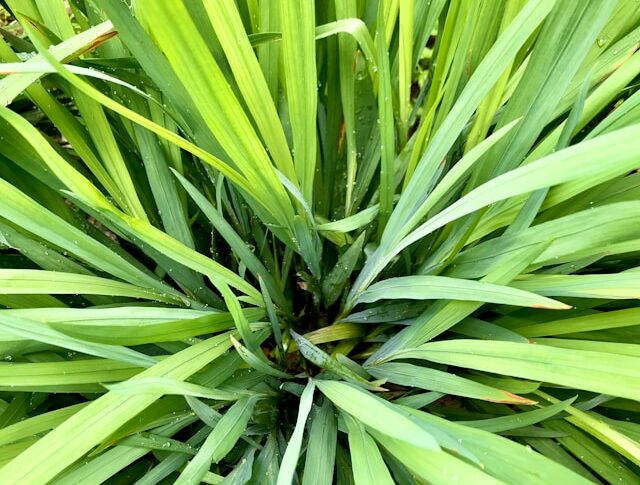
Marigold (Tagetes spp.)
Marigolds add a splash of color to your garden and act as a natural insect repellent. They contain pyrethrin, an effective mosquito-killer compound (Ponkiya et al., 2018). Marigolds can effectively repel mosquitoes, aphids, and other garden pests. Plant them around your vegetable garden to protect your crops from harmful insects.
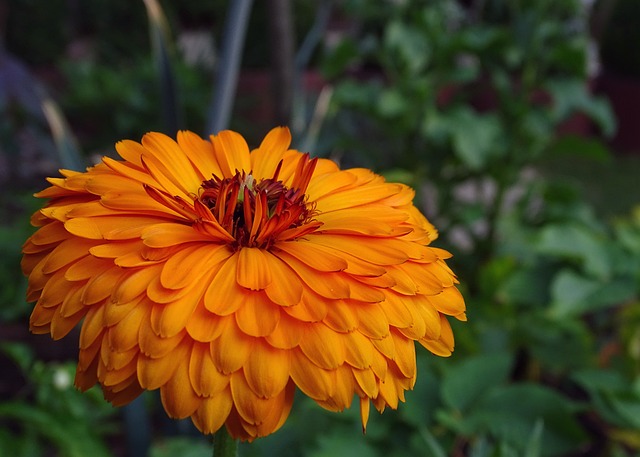
Olive (Olea europaea)
Olive trees have insect-repellent properties. Their essential oil contains compounds that repel mosquitoes. Plant olive trees in your garden to enjoy their shade and natural mosquito-repelling benefits.

Peppermint (Mentha piperita)
Peppermint’s strong, minty aroma is not just refreshing but also an effective mosquito deterrent. Its essential oils provide high repellency rates, with protection times ranging from 9.1 to 11.5 hours (Asadollahi et al., 2019). Besides repelling mosquitoes, peppermint can also help deter ants, spiders, and other pests. Plant peppermint in containers or garden beds to create a natural insect barrier.
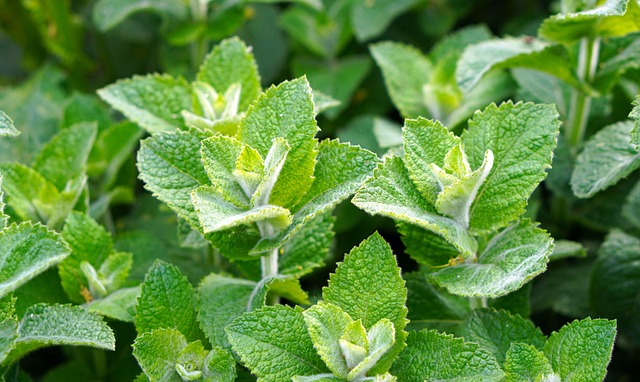
Rosemary (Rosmarinus officinalis)
Rosemary is a fragrant herb that can repel mosquitoes and other insects. Its essential oil contains cineole, camphor, and pinene, which are effective against various pests. Rosemary can be grown in pots or garden beds, and its branches can be used to make natural insect-repellent sachets or sprays.
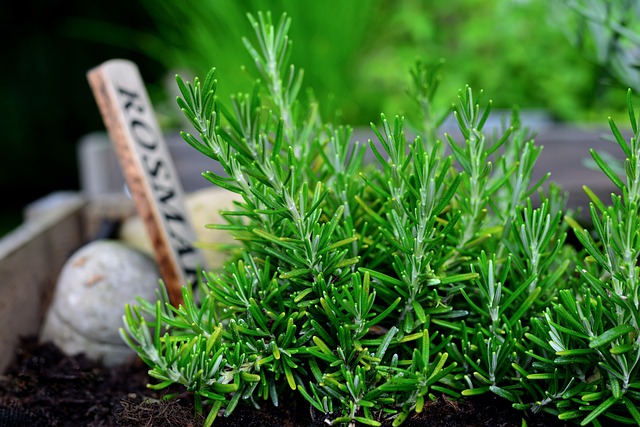
Sage (Salvia officinalis)
Sage is another herb with insect-repelling properties. Its oil’s strong scent can deter mosquitoes, and burning sage leaves can provide added protection in outdoor areas. Plant sage in your garden to use as both a culinary herb and a natural insect repellent.
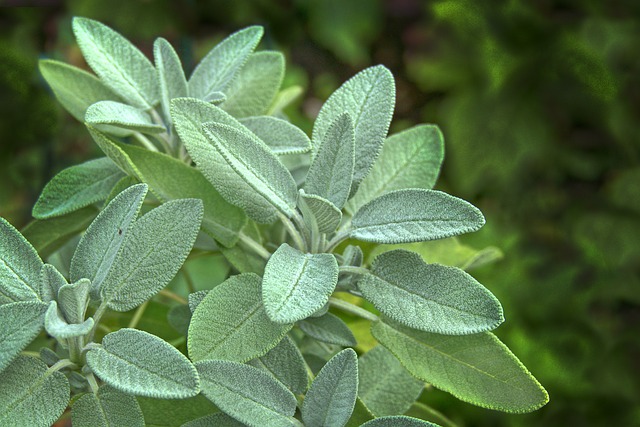
Sandalwood (Santalum album)
Sandalwood oil is known for its soothing fragrance and insect-repellent properties. Its essential oil can keep mosquitoes away. Use sandalwood oil in diffusers or sprays for natural mosquito control.

Soybean (Glycine max)
Soybean oil is a natural insect repellent that can deter mosquitoes. Its essential oil contains compounds that repel mosquitoes effectively. Use soybean oil-based repellents or plant soybeans in your garden for natural mosquito control.

Thyme (Thymus vulgaris)
Thyme is a versatile herb that also acts as a mosquito repellent. The essential oil contains thymol, which is effective against mosquitoes. Plant thyme in your garden, and use its fresh leaves in cooking while enjoying its repellent benefits.
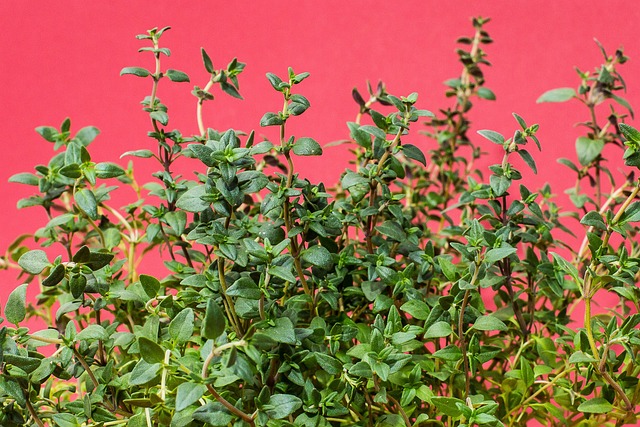
Violet (Viola odorata)
Violets have a delicate fragrance that can deter mosquitoes. Plant violets in your garden to add beauty and insect-repellent properties to your outdoor spaces.
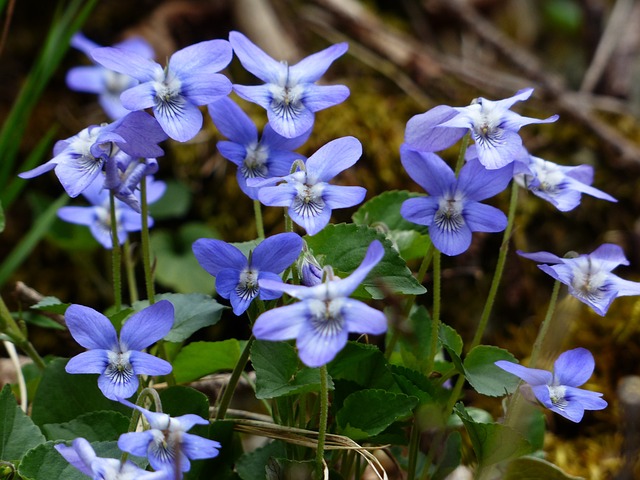
Conclusion
Incorporating mosquito-repelling plants into your garden offers an eco-friendly and aesthetically pleasing approach to pest management. These plants not only enhance the beauty of your outdoor space but also provide natural repellents through their essential oils and crushed leaves. However, it is important to note that while growing these plants can reduce mosquito presence, they may not entirely eliminate mosquitoes from your garden. For optimal effectiveness, consider using the concentrated forms of these plants, such as essential oils, to maintain a mosquito-free environment.
Resources
- Asadollahi, A., Khoobdel, M., Zahraei-Ramazani, A., Azarmi, S., & Mosawi, S. H. (2019). Effectiveness of plant-based repellents against different Anopheles species: a systematic review. Malaria Journal, 18(1). https://malariajournal.biomedcentral.com/articles/10.1186/s12936-019-3064-8
- Burdick, A., & McIntosh, J. (2024, July 5). 19 Plants That Work to Repel Mosquitos in Your Backyard. The Spruce. https://www.thespruce.com/plants-that-repel-mosquitoes-4583885
- Does Lavender Repel Mosquitoes? (n.d.). https://mosquitomagician.com/does-lavender-repel-mosquitoes/
- Ponkiya, N., Desai, S., Mistry, J., Patel, S., & Ingalhalli, R. (2018). Development of economical mosquito repellent using marigold plant. Int. J. Res. Trends Innov, 3, 47-54.
